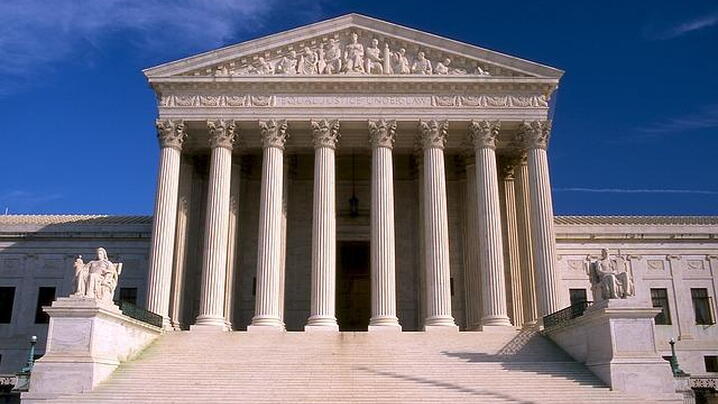
by Lisa Soronen, executive director, State and Local Legal Center
In a long-awaited decision in Carpenter v. United States, the Supreme Court held 5-to-4 that the Fourth Amendment requires the government to receive a warrant to obtain cell-site location information (CSLI).
In the court’s majority opinion, Chief Justice Roberts provides an explanation of how CSLI works: “Cell phones continuously scan their environment looking for the best signal, which generally comes from the closest cell site. Most modern devices, such as smartphones, tap into the wireless network several times a minute whenever their signal is on, even if the owner is not using one of the phone’s features. Each time the phone connects to a cell site, it generates a time-stamped record known as cell-site location information (CSLI).”
Robbery suspects gave the FBI Timothy Carpenter’s name and cellphone number as an accomplice who participated in a number of robberies with them. Prosecutors obtained Carpenter’s CSLI for a 100-day time period and were able to show that Carpenter was located at four of the robberies at the exact time they occurred. Per the Stored Communications Act, prosecutors applied for a less-stringent court order rather than a warrant to obtain the records.
In concluding that obtaining CSLI was a search, the court rejected the argument that the “third-party” doctrine applies in this case. In previous cases the court has held that persons have no legitimate expectation of privacy in information voluntarily turned over to third parties, meaning such information isn’t protected by the Fourth Amendment. According to the court, the information to which the court applied the third-party doctrine in previous cases (bank records and dialed phone numbers) isn’t comparable to “the ability to chronicle a person’s past movements through the record of his cell phone signals.”
The court further explained: “With access to CSLI, the Government can now travel back in time to retrace a person’s whereabouts, subject only to the retention policies of the wireless carriers, which currently maintain records for up to five years. Critically, because location information is continually logged for all of the 400 million devices in the United States—not just those belonging to persons who might happen to come under investigation—this newfound tracking capacity runs against everyone. [P]olice need not even know in advance whether they want to follow a particular individual, or when.”
After deciding that obtaining CSLI is a Fourth Amendment search, the court concluded the government needs to obtain a warrant because warrants are typically required where “a search is undertaken by law enforcement officials to discover evidence of criminal wrongdoing.” The SCA’s requirement to show “reasonable grounds” for believing that the records were “relevant and material to an ongoing investigation” “falls well short of the probable cause required for a warrant.”
Related Content
Supreme Court Rules a Warrant Needed to Search Car on Curtilage. In this 2018 blog post, the court ruled that police needed to obtain a search warrant when searching a car found on private residential property.
Supreme Court Issues Unanimous Fourth Amendment Ruling for Driver Not Listed on Rental Agreement. In another 2018 blog post, the issue the court had to rule on was if a driver not listed on a rental agreement had a reasonable expectation of privacy in the rental car.
Instant, Electronic Search Warrants. This 2015 article looks at how one community, Camden County, Georgia, went digital with its search warrant process, saving both time and money.
New, Reduced Membership Dues
A new, reduced dues rate is available for CAOs/ACAOs, along with additional discounts for those in smaller communities, has been implemented. Learn more and be sure to join or renew today!
